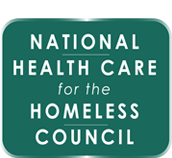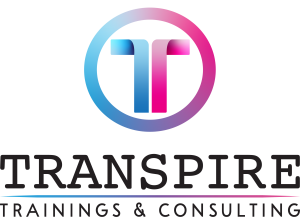Description
Homelessness and systems of gender oppression (e.g. interpersonal violence, human trafficking, transphobia, sexism, etc.) profoundly impact the behavioral health of individuals in a manner that requires community-based holistic care from health care providers and domestic violence advocates. Operating from a collective model of care is essential to providing equitable, high-quality support for both patients and providers.
This learning collaborative (LC) is intended for individuals working at Federally Qualified Health Centers (FQHCs; including but not limited to Community Health Centers and Health Care for the Homeless Health Centers) who are interested in learning how to support underserved populations at the intersection of gender and homelessness through community partnerships. Over the course of four 75-minute sessions held February-March 2022, we will address a constellation of intersecting issues including gender identity and expression, substance use disorder, mental health, homelessness, human trafficking, and interpersonal violence.
This LC will equip participants with skills to build and strengthen connections between health centers and gender affirming community partners who provide supportive services to interpersonal violence and human trafficking survivors; provide universal education about healthy relationships; and integrate principles of healing-centered engagement into self-care and community-care for service providers. Participants will have the opportunity to both engage with national experts and connect with other providers across the country. Content and discussions will include both clinical and non-clinical perspectives, so we encourage multidisciplinary teams from health centers to apply together if possible.
Learning Objectives
As a result of this Learning Collaborative, participants will be able to:
- Define how behavioral health, homelessness, substance use, and gender-based violence intersect and impact patients and survivors.
- Identify strategies, policies, and practices that support long term success for patients.
- Provide universal education about interpersonal violence and human trafficking through a healing-centered engagement lens.
- Identify two strategies to deepen provider-advocate partnerships and expand support networks within their communities.
This session will explore how health centers and community partners can strengthen their approaches to being present with themselves and their patients/clients as a way to reduce provider burnout and address implicit bias. Questions considered include: Are we set up to listen fully to the person in front of us? A healing centered approach is a powerful tool toward creating safer spaces for patients/clients to share their experiences with interpersonal violence and exploitation
Session 2. March 2nd 2022
This session will address the prevalence of homelessness among gender-diverse youth and its unique challenges and solutions. Participants will gain a national overview of the crisis, case studies of effective local solutions, and a facilitated peer discussion on the topic.
Session 3. March 9th 2022
This session will introduce the participants to a brief healing centered clinical intervention that providers can use to address interpersonal violence, human trafficking and exploitation. The CUES intervention shifts the focus from screening to universal education, ensuring that all patients receive information about healthy relationships and safer planning regardless of what they choose to share. Participants will have an opportunity to practice the intervention and consider policies and protocols that will be necessary to implement CUES in their health centers.
Session 4. March 16th 2022
This session will explore how health centers and community organizations can center survivors and build relationships of mutuality to provide holistic behavioral health supportive services. This session will be led by Nurse Practitioner Courtney Pladsen and Samantha Valez who is a survivor with lived experience of homelessness and substance use disorder. We will hear from both perspectives of a clinical relationship about what has been successful and harmful along Sam’s healing journey. Participants are encouraged to submit questions ahead of time (see registration form).
LC Faculty and Presenters:
National Health Care for the Homeless Council:
- Kelli Klein, BA, Clinical Coordinator (she/her/hers)
- Courtney Pladsen, DNP, FNP-BC, RN, Director of Clinical and Quality Improvement (she/her/hers)
Health Partners on IPV + Exploitation (Futures Without Violence):
- Surabhi Kukke, MPH, Consultant (she/her)
- Rebecca Levenson, MA, Senior Health Policy Consultant (she/her)
- Camila Sanchez, Program Assistant (she/her)
Featured Speakers:
- Claudia Delfin, Program Coordinator at Corazon Harm Reduction (she/her/hers)
- Samantha Valez, Survivor and Peer Support (she/her)
- Landon (LJ) Woolston, MSW, Founder of Transpire Trainings (he/him and they/them)
Questions?: Please email Camila Sanchez, Program Assistant, Health Partners on IPV + Exploitation csanchez@futureswithoutviolence.org





